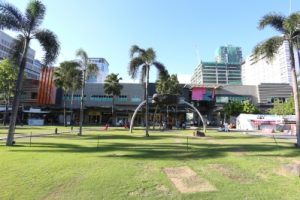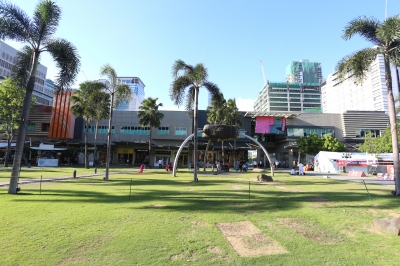 The Philippines climbed five notches to 47th place out of 140 economies in the World Economic Forum’s (WEF) Global Competitiveness Report 2015-2016, better than the 52nd place out of 144 economies in last year’s report.
The Philippines climbed five notches to 47th place out of 140 economies in the World Economic Forum’s (WEF) Global Competitiveness Report 2015-2016, better than the 52nd place out of 144 economies in last year’s report.
This is the fifth year in a row the country improved its ranking in the annual WEF publication that provides a comprehensive picture of the productivity and competitiveness of economies around the world by gathering statistical and survey data on over 114 indicators grouped into 12 pillars in 140 countries.
Switzerland ranked first for the seventh consecutive year, followed by Singapore, United States, Germany, Netherlands, Japan, Hong Kong, Finland, Sweden, and United Kingdom.
The latest report brought the Philippines closer to attaining its goal of moving to the top third of world rankings.
For this year, the Philippines moved up in 10 of the 12 pillars of the index. The country performed the strongest in labor market efficiency (from 91st to 82nd), health and primary education (92nd to 86th), market size (35th to 30th), business sophistication (46th to 42nd ), innovation (52nd to 48th), and macroeconomic environment (from 26th to 24th).
It improved one notch each in four other pillars — in technological readiness (68th), financial market development (48th), infrastructure (90th), and higher education and training (63rd).
On the other hand, declines were posted in two pillars. Under institutions, one of the key drivers last year, the Philippines dropped 10 spots from 67th to 77th place. The country also dropped by 10 places in goods market efficiency to 80th from 70th place previously.
While the WEF report acknowledged improvements in the efficiency and flexibility of the labor market in the country, it also recognized factors that need to be attended to ensure sustainable and inclusive growth. Identified as the five most problematic factors for doing business in the Philippines are inefficient government bureaucracy, inadequate supply of infrastructure, corruption, complexity of tax regulations, and tax rates.
The country’s lowest ranked indicators include the number of procedures to start a business (139th), number of days to start a business (119th), redundancy costs (124th), and imports as a percentage of GDP (119th).
Infrastructure
When it comes to competitiveness in the quality of road infrastructure, the country declined 10 places to 97th from 87th; rail infrastructure to 84th from 80th; and ports to 103rd from 101st. It’s a different story for air transport infrastructure with the Philippine competitiveness index improving 10 points to 98th from 108th last year.
In the area of customs procedures, meanwhile, a drop to 107th rank was registered from 99th last year.
The Philippines remains fifth in rank among Association of Southeast Asian Nations (ASEAN) economies in the report. It is the third biggest gainer for this year after Vietnam and Laos, and has been the most improved economy in competitiveness ranking in ASEAN and across the world over the period dating back to 2010.
The government and business groups welcomed the report. Makati Business Club, in a statement, said “as the Philippines continues to improve, other economies are likewise moving and are either rapidly catching up or overtaking the country.”
“Moving forward, especially towards a change in administration, MBC, through the Philippine Business Groups and Joint Foreign Chambers, commit to support all efforts aimed at further improving the country’s competitiveness,” MBC said.
Image courtesy of David Castillo Dominici at FreeDigitalPhotos.net





